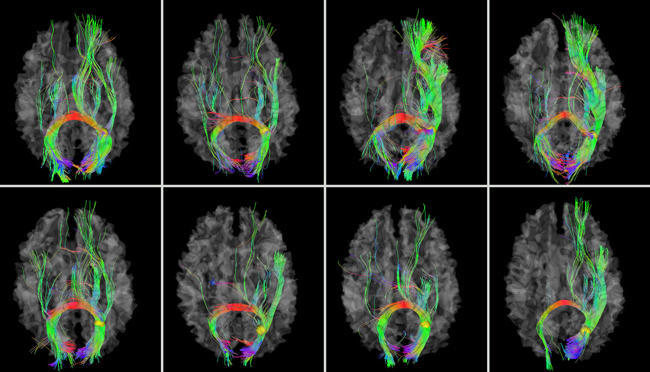
Section Branding
Header Content
Georgia Today: Harris statement on an abortion-related death; Walz visits Macon; Antibiotics factory
Primary Content
LISTEN: On the Tuesday, Sept. 17 edition of Georgia Today: Kamala Harris says that Donald Trump's policies played a role in a Georgia woman's death; vice president hopeful Tim Walz made a stop in Macon today; and the American factory making one of the most common antibiotics is at risk of shutting down.

Peter Biello: Welcome to the Georgia Today podcast from GPB News. Today is Tuesday, Sept. 17. I'm Peter Biello. On today's episode, Vice President Kamala Harris says that Donald Trump's abortion policies played a role in a Georgia woman's death. Vice presidential hopeful Tim Walz campaigns in Macon. And the American factory making one of the most common antibiotics is at risk of shutting down. These stories and more are coming up on this edition of Georgia Today.
Story 1:
Peter Biello: Vice President Kamala Harris says Donald Trump's role in undoing national abortion rights is to blame for a Georgia woman's death. Amber Thurman died after waiting 20 hours for a hospital to treat complications from an abortion pill. Her death in 2022, first reported by ProPublica yesterday, is the first publicly reported instance of a woman dying from delayed care. Harris and other Democrats are likely to talk about it in speeches and campaign ads as the election approaches.
Story 2:
Peter Biello: Vice presidential candidate Tim Walz kicked off a Democratic campaign swing through two battleground states, Georgia and North Carolina, with a stop in Macon today. GPB's Grant Blankenship was there.
Grant Blankenship: Walz first spoke to local Democratic Party volunteers who are working the phones for the campaign, then visited H&H, Macon's legendary soul food restaurant. At the call center, he addressed the second thwarted attempt on the life of Republican candidate Donald Trump.
Tim Walz: We don't solve our differences in this country with violence. We condemn it in all its forms. We solve our differences at the ballot box.
Grant Blankenship: And he challenged his opponent J.D. Vance's statement that school shootings like the one at Appalachee High School in Barrow County are, quote, "a fact of life."
Tim Walz: That is not just a fact of life, people. That is not just a fact of life. And as Donald Trump would know, this violence across the country has got to end. Gun violence has got to end.
Grant Blankenship: Walz reminded volunteers that the path to presidential victory once again runs through Georgia, which he called a privilege for the state. For GPB News, I'm Grant Blankenship in Macon.

Story 3:
Peter Biello: The only American factory making the generic version of the antibiotic amoxicillin is at risk of shutting down. This comes ahead of a season where flu and viruses typically go up. GPB's Ellen Eldridge has more.
Ellen Eldridge: U.S. Antibiotics says it can't compete with China on generic drug costs. They're now asking for federal government to support them by purchasing the drug produced here in the U.S. for their own stockpiles. CEO Rick Jackson says access to lifesaving medication is crucial to public health.
Rick Jackson: We're not asking the federal government to subsidize us or give us money. We're asking them to simply purchase what they're purchasing now from us. They are buying a product for the stockpile and the Army and armed services.
Ellen Eldridge: The Food and Drug Administration currently lists amoxicillin in its database of drugs experiencing a shortage. For GPB News, I'm Ellen Eldridge.
Story 4:
Peter Biello: In a rare bipartisan consensus about Georgia's election process, both Republicans and Democrats agree that persistent mail delivery delays in the state could cost voters who use absentee ballots their chance to be counted on Election Day this November. Georgia's county election officers joined several dozen of their counterparts from across the nation this month who are raising serious concerns about the U.S. Postal Service's ability to properly deliver absentee ballots on time for the Nov. 5 general election. The National Association of Secretaries of State and the National Association of State Election Directors sent a letter to U.S. Postmaster General Louis DeJoy that listed a range of complaints about Postal Service processing facilities, inadequate staff training, as well as potentially lost and delayed election mail that could put eligible voters at risk of having their registration canceled or absentee ballots not delivered to local elections offices in time to have the votes counted. Meanwhile, the mail delivery delays are attracting scrutiny from a bipartisan group of Georgia's congressional delegation. Several Republican Georgia members of Congress, including Reps. Andrew Clyde, Mike Collins and Austin Scott, have requested updated information from DeJoy to explain mail delays. Georgia Democratic Sens. Raphael Warnock and Jon Ossoff also have asked DeJoy how his organization plans to resolve the problems that caused Georgia to be ranked last in the Postal Service's 2024 quarterly performance report in June.
Story 5:
Peter Biello: State energy regulators have approved Georgia Power's plan to buy about 80 megawatts of electricity generated by burning wood chips. The Georgia Public Service Commission voted 4 to 1 today in favor of the company's proposal. Project supporters say more biomass in Georgia Power's energy mix will give a needed boost to the state's forest industry. Project opponents call it a polluting, expensive and unreliable plan that would cost far more than its value to the industry.

Story 6:
Peter Biello: Today, scientists have lots of great tools to help them understand how kids brains develop as they grow. But what happens when these tools weren't built with all kids in mind? GPB's Sofi Gratas has more from Macon, where there are ongoing efforts to address this problem. And a quick programing note. This segment has aired before, but we felt it was worth another listen for you. Here's Sofi.
Sofi Gratas: At a Mercer University lab, students are watching each other's brains at work.
Grace Gasaway: You have to make sure that it's equidistanced from, like, this point right here.
Sofi Gratas: Grace Gasaway works on fitting a functional near infrared spectroscopy cap — fNIRS, for short — onto another classmate's head. It looks like a swim cap covered in empty spools of thread. Once on, the cap allows Gasaway and her classmates to see a 3D image of Parth Patel's brain.
Grace Gasaway: Do these hurt?
Parth Patel: No, those don't hurt.
Sofi Gratas: Each empty spool is actually a detector measuring brain activity through an infrared light signal. The signals are read on a computer.
Grace Gasaway: The green indicates that the signal is good and the red indicates, obviously, the signal is bad.
Sofi Gratas: But there's a problem. Patel's hair is really dark and really thick.
Grace Gasaway: I would check these seven in the back here.
Sofi Gratas: On the screen, there's lots of red and yellow, indicating a poor connection with his scalp.
Grace Gasaway: Obviously it's not a good detector because there's all this hair in the way. And this is what takes a while.
Sofi Gratas: It takes moving that hair one detector at a time to get a good connection. While these kids are in college, fNIRS is optimized to study brain activity in younger subjects, says neuroscientist Anastasia Kerr-German, who runs the research happening here.
Anastasia Kerr-German: We can't stick a kid in an fMRI scanner in a wakeful state until they're a healthy 6 or 7 years old, because they won't sit for it.
Sofi Gratas: But by that time, researchers may have missed a crucial window for understanding how things like ADHD and autism develop. fNIRS has helped reach those younger kids, but Kerr-German says:
Anastasia Kerr-German: Now we've found that you can't use it with any little kid that has any kind of hairstyle outside of flat, straight hair.
Sofi Gratas: The hair most white kids have. This is why this cutting-edge research has so far largely left out Black and brown kids. That could reinforce prejudices in children's mental health. For example, white boys are more likely than others to be diagnosed with ADHD. A diagnosis can lead to support. Meanwhile, Black boys more often get labeled with behavioral issues for which they may be punished. German wants to see these trends change, so she's creating a more inclusive type of fNIRS cap.
Anastasia Kerr-German: The lowest-hanging fruit, in our opinion, is to address the disparities, based on race in this technology. We're going to actually do this down lower...
Sofi Gratas: For now, the prototype involves flexible plastic used to weave fNIRs detectors onto a participant's head. It's affordable to recreate, and Kerr-German hopes this model gets approved for use across the country.
Anastasia Kerr-German: Let her hair rest on top.
Sofi Gratas: But student Alexandria Shells, also working in the lab, says it will take more than just fixing the tech. Shells is Black and recognizes mistrust runs deep.
Alexandria Shells: We're very protective, I think — as we should be; a lot of harm has been done to our community, especially coming from research institutions. And so I think our biggest goal with this project is, like, helping build trust.
Sofi Gratas: At the Child Development Center at Central Georgia Technical College, Kerr-German has been welcomed to start building that trust. She moves around a classroom of preschoolers.
Anastasia Kerr-German: That's one popsicle and two popsicles.
Sofi Gratas: Playing with them.
Anastasia Kerr-German: That's right, three popsicles! Good job!
Sofi Gratas: But also watching for any signs that a kid may need extra support. She'll share what she sees with parents in the hopes that information can help a child succeed.
Anastasia Kerr-German: We also, hopefully will be building bridges to where these communities want to then come be a part of research.
Sofi Gratas: It's a first step, she says. But a big one. For GPB News, I'm Sofi Gratas.
Story 7:
Peter Biello: Gov. Brian Kemp has signed an order allowing state schools to pay athletes directly for name, image and likeness deals. The move comes as athletic conferences nationwide battle in court over the issue of college players getting paid. Kemp says his order puts Georgia's student athletes on a level playing field with those in other states. It also says no state funds can be used to pay student athletes.
Story 8:
Peter Biello: Georgia broke tourism records last year for the second year in a row. Gov. Brian Kemp announced the numbers in Atlanta at his annual tourism conference today. Georgia domestic and international visitors rose by 5 million in 2023 to a record 171 million. The industry supported more than 463,000 jobs of more than 20,000 jobs over the previous year.
Peter Biello: And that is it for this edition of Georgia Today. Thanks so much for tuning in. And if you want to learn more about any of these stories or catch the latest news, visit GPB.org/news. And remember to subscribe to this podcast. This is a great way to stay on top of all things that are happening in Georgia. And if you subscribe, we will pop up automatically in your podcast feed tomorrow. And if you've got feedback or a story idea that we should be pursuing, let us know by email. The address is GeorgiaToday@GPB.org. I'm Peter Biello. Thank you again for listening. We'll see you tomorrow.
---
For more on these stories and more, go to GPB.org/news



